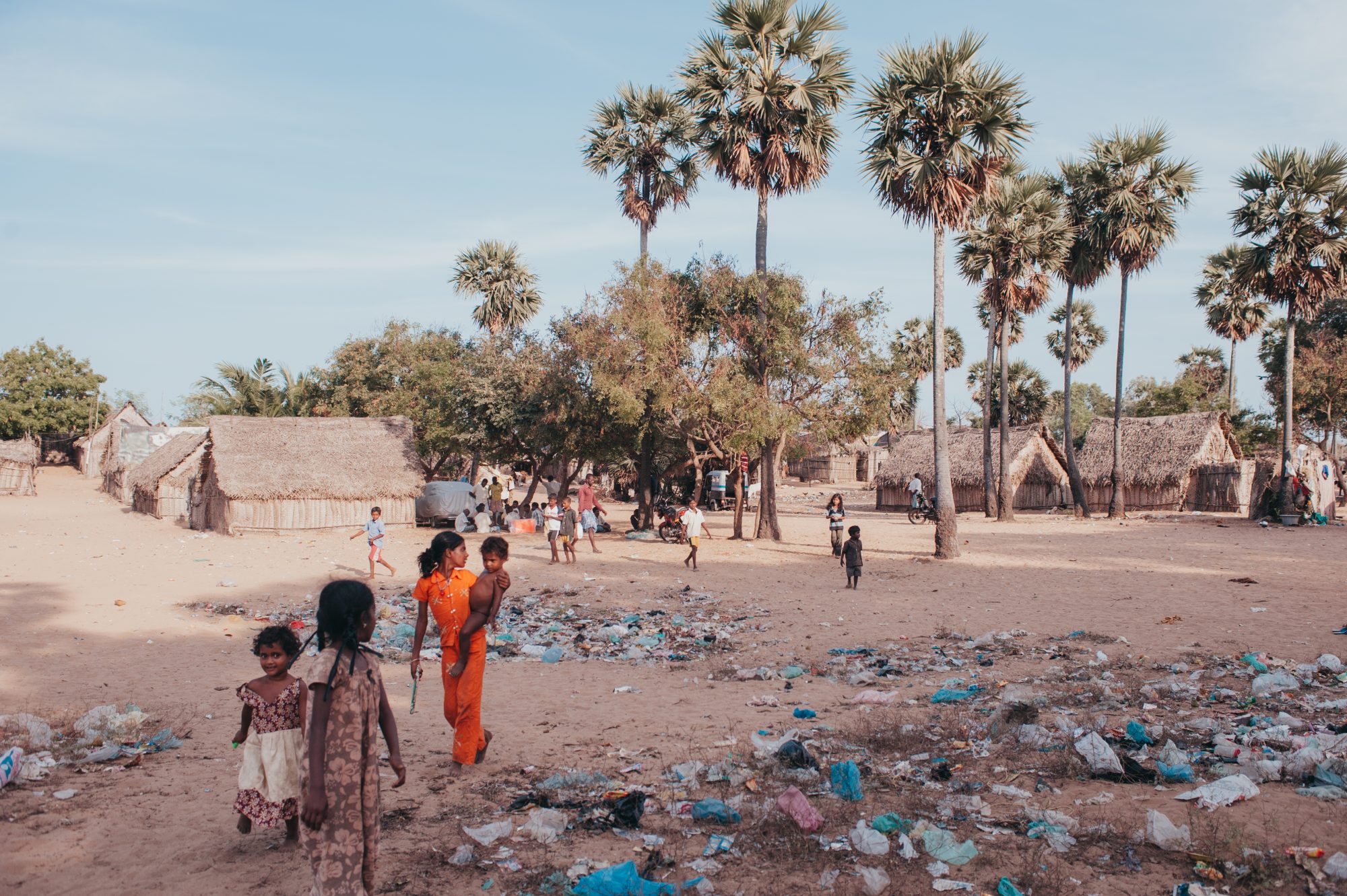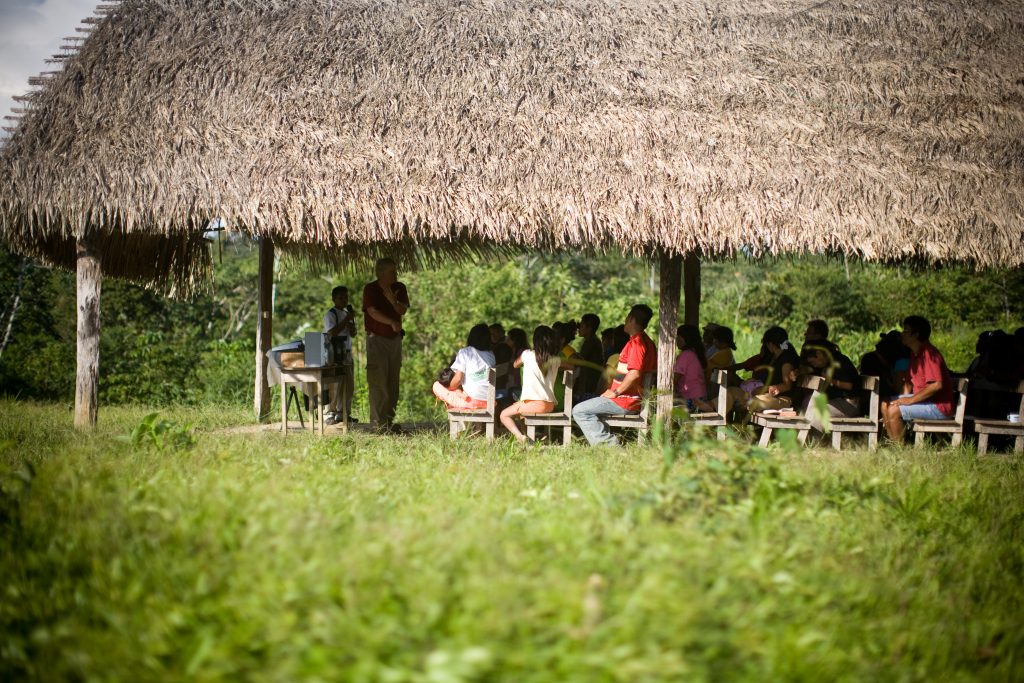Reading a text message from my 21-year-old nursing-student daughter left me conflicted: “They put me on the COVID ICU today but, in other news, I got a 98 on my paper.”
While celebrating her achievement (along with my grammatical edits to her paper!), I was genuinely concerned about the risks of her job. Worry for her health was offset, though, by the joy of knowing that my wife and I have, by God’s grace, raised a daughter who’s a caregiver. To my wonderment, God has transformed our daughter into a self-sacrificing Christ-follower who serves patients amid a global pandemic as a nursing assistant.

We’re all extra thankful for our essential, frontline workers right now. How much more grateful should we be for those who remain committed to the missionary task in a pandemic? Nothing is more essential than sharing the life-giving message of the gospel with a lost and dying world.
As frontline workers in the Great Commission, overseas missionaries have been entrusted by their supporting churches to take the gospel to the nations. They’ve done so in the best of times and the worst of times. Amid a global pandemic, their work looks different, but it hasn’t stopped. It must not stop.
Missionaries are eternally essential workers.
Missionaries’ Essential Work
Can you imagine rushing your loved one to the hospital, gasping for breath and clinging to life, only to discover all the doctors and nurses walking to the parking lot, getting in their cars and heading home? The hospital is abandoned; the doors are chained. In the greatest hour of need, when life and death hang in the balance, those trained to help cannot be found.
In this pandemic, even more tragic would be the loss of the witness of the church, displayed among the nations by our frontline missionaries. A people condemned by their sin have no greater need than for someone to point them to Christ. Thankfully, the church hasn’t surrendered. Missionary work continues.
The organization I serve, the International Mission Board of the Southern Baptist Convention, has been appointing missionaries since 1845. Over the course of those 175 years, our nation has been shaken by a civil war, dozens of economic recessions and the Great Depression. During the same time span, our world has been shaken by two world wars, as well as numerous other wars and conflicts. More than a few missionaries, innocently caught up in those conflicts, became victims. Natural disasters, like the 2004 tsunami that took the lives of a quarter-million people, have brought enormous challenges for missionaries, and even death to some. Intolerance for any religion, as well as religious extremism that only welcomes one religion, have yielded persecution that has, at times, proven just as deadly for missionaries as for new converts.
While a theology of risk has always guided our work, it has been at the forefront of decision-making of late. Acknowledging the dangers, most missionaries today have been able to remain on the field. That’s not only true for the nearly 25,000 who have served as Southern Baptist missionaries over the past 175 years. It’s true for thousands of others who serve independently and through other sending organizations.
God’s Essential Work
Facing a disease that has traveled farther and faster than any before in human history, to which nations have almost universally responded with travel bans and lockdowns, one could argue it’s time to wave the white flag and ask our missionaries to shelter in place with their loved ones here in the United States. That is being required for some. Expiring visas, closed borders, and special health or family circumstances are necessitating some missionaries to grudgingly leave their places of assignment.
Even then, trusting in the Spirit’s leading and the Father’s sovereign reign over every circumstance, we have faith that God’s mission will continue to advance, not in spite of these challenges but because of them. When Moses was placed in a basket, when Paul climbed in one, or when Mary and Joseph fled for Egypt, God’s mission was advanced, not thwarted. Missionaries who have relocated, as well as those who remain at their posts, continue to press the gospel forward. Most are engaging through online evangelism and discipleship. COVID relief projects, focused primarily on food distribution and medical aid, are ongoing around the world.
In the COVID-19 pandemic, hundreds of thousands have already died, many no doubt still lost in their sin. How many more are in jeopardy of succumbing to this virus until or unless a vaccine is discovered? But COVID-19 data accounts for only a fraction of what’s really happening. Unrelated to the pandemic, every single day, 155,252 people die who have given no indication of their belief in gospel grace. Many of them have never even heard this news.
Like the breaking-news reporters we hope to hear announcing that a COVID-19 vaccine is ready for distribution, missionaries have better news to share. Their testimony is that, by repentance and faith, anyone can know Christ and the power of His resurrection (Phil. 3:10). That news must not be silenced!

His Mission Won’t Stop
Since the middle of March, thousands of students and adults who would’ve traveled from our churches to the nations on short-term mission trips have been unable to go. As we enter the summer months, the number of canceled mission trips will exponentially increase. Thank God for those who have gone out from us, not for weeks or months, but to plant their lives among a lost people as ambassadors for Christ. Thank God they’re still there.
Now is the time, especially amid a global pandemic, to “pray earnestly to the Lord of the harvest to send out laborers into his harvest” (Matt. 9:38). And now is the time for the church to renew our commitment to sending and supporting more career missionaries, recognizing their unequaled value in fulfilling the Great Commission. We long for days when we will walk and work again at their side. But let’s also celebrate their commitment to live alongside those who don’t yet know the One whose side was pierced for them.
Christ’s mission won’t be stopped. It can’t be.

